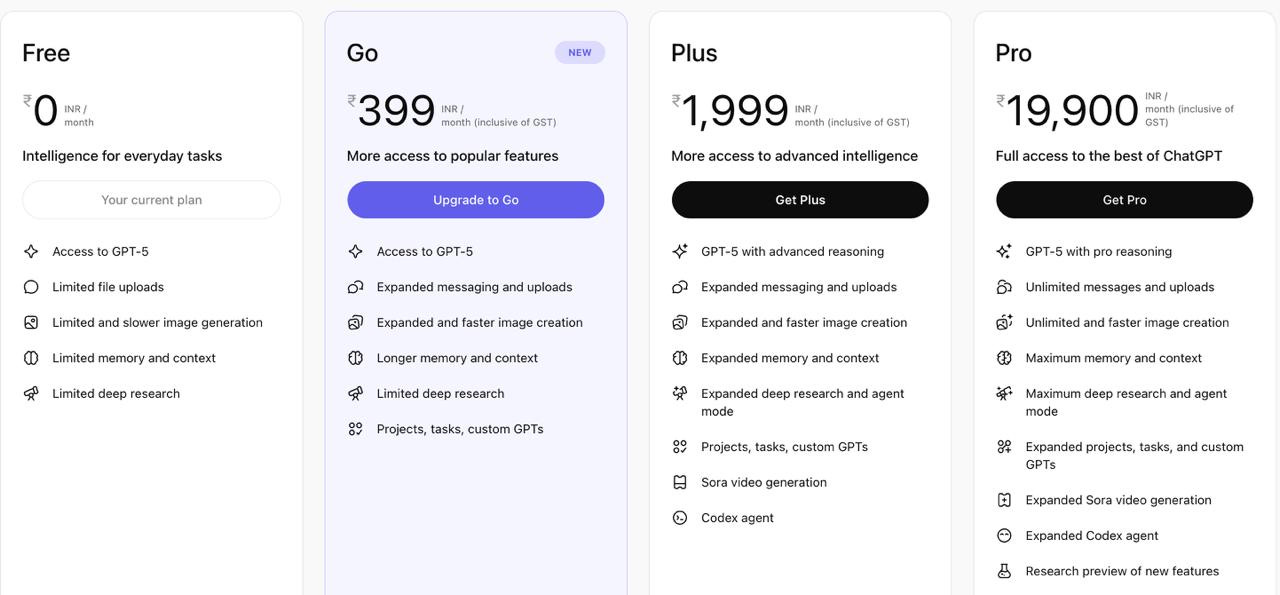Welcome back—the Indian government is putting online safety ahead of a $23 billion industry after the country’s parliament passed a law that bans real-money games.
The industry has been subject to regulatory uncertainty for a number of years, but that hasn’t stopped it building hugely lucrative businesses. Real-money gaming companies in India are estimated to make around $3.6 billion a year, which contributes some $2.3 billion in taxes. But, after the online gaming bill became law, the industry—which include skill-based games like fantasy cricket and gambling-style titles based on chance—will be outlawed with significant punishments.
“The legislation prohibits advertisements and financial transactions linked to real-money gaming, with violators facing up to three years in jail or fines of up to ₹10 million ($115,000). Banks are barred from processing related payments, and celebrities endorsing such games risk penalties of up to two years in jail or fines of ₹5 million ($57,000),” reported TechCrunch.
One of the major driving factors is reports of gamers resorting to harm or even suicide after losing money. Those in the industry attribute these to offshore betting and gambling apps, which, they argue, may become even more popular as regulated games disappear entirely.
The law is likely to impact India’s sports industry significantly. The Economic Times reported that the BCCI (The Board of Control for Cricket in India) and broadcaster JioStar are major beneficiaries of the fantasy sport industry’s advertising spending, which all in all is estimated at more than $500 million (₹5,000 crore) per year.
More immediately, a range of companies are now pivoting or making moves in response. That’s a big deal given the industry has raised over $2 billion from investors collectively.
TechCrunch, again, has the details:
-
Shortly after the bill passed in Parliament, Indian unicorns Dream Sports and Mobile Premier League (MPL) — along with other startups like Gameskraft, Probo, and Zupee — began shutting down their real-money gaming operations
Dream Sports, which has Tiger Global among its backers, is closing all apps and games that involve real-money transactions. It had been planning to expand beyond India, it’s not clear how that will be impacted. It may, though, expand into financial services, as it explores new options.
Some companies are already looking to overseas markets.
Winzo, which has 250 million users, is planning to focus on the US, and it added short video content to help stand out. The company has already made global moves, including spending $25 million to enter Brazil in 2023. It said India is a major market for user numbers, but not for revenue.
Another gaming startup, Rush, plans to go “all-in” on the US market following the new regulations.
The new law may outlaw real-money gaming, but politicians have been talking up the potential for esports. Taking such a hard line will make it tough for esports companies to feel comfortable in India. But, ultimately, the writing and narrative has been on the wall for real-money gaming in India for some time, it just reached its conclusion last week.
Follow the Asia Tech Review LinkedIn page for updates on posts published here and interesting things that come our way. If you’re a news junkie, the ATR Telegram news feed has you covered with news as-it-happens or join the community chat here.
There’s never a dull moment when it comes to Nvidia in China. The company is reported to be working on a new China-only AI chip, the B30A, based on its latest Blackwell architecture and more advanced than its China-focused H20 model, as had been speculated in recent weeks.
The obvious reason is for better performance, but it may be necessary because that H20 has run into problems. Right after the US gave Nvidia permission to sell it again in China, rumours of a deliberate security hole began circulating. Now, Beijing has moved to curb sales after US commerce secretary Howard Lutnick made comments on chip exports that officials considered “insulting.”
Still, CEO Jensen Huang said the company is in talks with Chinese officials over those alleged security concerns, which Nvidia has consistently denied exist. For now, though, Nvidia has halted H20 production in favour of advancing development of the new Blackwell-based product.
Meanwhile, Cambricon—one of Nvidia’s Chinese rivals—is raising $560 million to double down on its AI chip tech. That’s, of course, part of the ongoing Chinese push to develop local products that offset a reliance on US companies.
The battle for Asia’s AI users is now in full swing after OpenAI launched a low-price product for India and plans to open an office in the country.
ChatGPT Go is the company’s cheapest subscription yet at 399 INR ($4.57) per month, and it is only available to users in India. OpenAI has previously said India is already its second largest market in terms of users, and this newly priced tier is designed to go after the country’s one billion-plus internet users.
While ChatGPT Go is cheap, it isn’t aimed at cannibalising its existing plans. The new package offers ten times more messages and image generation prompts than the free version, not to mention faster responses, but it will also be aimed at becoming a gateway to more expensive plans. Its mid-range offering is 1,999 INR per month, or $22.80.
As for the local office, that’ll be located in New Delhi and opening “in the coming months.” The goal is to build links with the government, businesses and developers so you’d expect business development and sales hires.
OpenAI’s push comes one month after rival Perplexity teamed up with telco Airtel to offer its customers free access to its $200-per-year premium service. OpenAI has been linked with carrier deals, which might come later. It wasn’t all joy though, as a glitch with payment provider Stripe meant some customers weren’t able to buy ChatGPT Go on its launch day.
More: Sam Altman spoke with Zerodha co-founder and investor Nikhil Kamath on India and more
DeepSeek rolled out an upgraded model, V3.1, claiming it outperforms the widely recognized R1 on key benchmarks link
Z.ai, the Chinese AI unicorn formerly known as Zhipu, partnered with Alibaba Cloud to launch a free general-purpose AI agent for smartphones, tablets, and desktops that can handle everyday tasks like food orders and reservations link
ByteDance released a new open-source AI model, Seed-OSS-36B, to compete with DeepSeek and Alibaba Cloud in the global market link
Meituan is entering Brazil in a push that could shake up the country’s competitive food delivery market, which has just seen Uber partner with rival iFood link
China ordered public data centers to source over half of their chips from domestic suppliers, accelerating efforts to reduce reliance on foreign technology as US export controls tighten link
China’s regulators have drafted new rules for internet platform pricing, following complaints that prices were being manipulated and not transparent link
Qiming Venture Partners cut its new fund for Chinese AI and healthcare startups to $600M from $800M, reflecting caution toward China’s tech sector link
Microsoft failed to make required disclosures that it was using China-based employees as part of its team working on US government data, according to the same media outlet that broke news of the China-based operations link
Shein is reportedly considering moving its HQ from Singapore back to China to win Beijing’s approval for a planned Hong Kong IPO link
Xiaomi plans to launch its first electric car in Europe by 2027 link
Chip design software maker Empyrean Technology said it has made key advances in tools for memory chips and displays, part of its push to replace foreign tech link
China is reportedly considering allowing yuan-backed stablecoins for the first time to boost wider adoption of its currency globally link
The country’s top Android smartphone makers—Honor, Lenovo, Oppo, Vivo and Xiaomi—launched a joint platform to standardize privacy permissions as they add AI features link
China’s Great Firewall blocked all traffic to a common HTTPS port for over an hour, but isn’t clear why link
Apple sued Oppo in the US, alleging the Chinese smartphone maker poached a senior Apple Watch engineer and encouraged him to steal trade secrets to develop a rival wearable link
Tesla will add in-car voice assistant features in China using ByteDance’s Doubao AI for voice commands and DeepSeek chat for AI interactions link
TikTok remains banned in India, the company confirmed last week, dismissing media reports of a comeback after brief website access link
Apple will open a new store in Bangalore’s Phoenix Mall of Asia on September 2 link
Apple is expanding iPhone production in India across five factories, including two recently opened plants, as it reduces reliance on China—all four iPhone 17 versions, including the pro models, will be made in India ahead of their launch next month, the first time new devices will ship from the country at launch link
However, Foxconn has recalled about 300 Chinese engineers from an iPhone component plant in Tamil Nadu, marking another setback in Apple’s local expansion push link
Perhaps he’s stirring but Uber’s CEO says Rapido, not Ola, is the US firm’s biggest rival in India link
Tata is hiring an external CEO to lead its digital group, which owns online grocery business Big Basket and other businesses—its third leader since Tata Digital’s launch in 2019 link
Temasek is weighing a sweeping internal shake-up that could split the $300B Singapore sovereign fund into three arms: one holding Singaporean assets, another running the overseas portfolio and the other with fund investments link
Chinese streaming giants iQiyi and Tencent are ramping up original content in Southeast Asia to compete with US rivals link
Thailand rolled out a pilot program that lets tourists to convert crypto into local currency for spending link
Butterfly Effect, the Chinese-turned-Singaporean startup behind AI pioneer Manus, expects to reach an annual revenue run rate of $90M, according to co-founder Peak Ji link
Thailand’s data center capacity is set to triple to 1 gigawatt by 2027 from 350 megawatts this year, fueled by $6.5B in planned investments to meet rising demand for cloud and AI services link
JPMorgan has agreed to pay $330mn to the Malaysian government to settle claims related to its role in the 1MDB financial scandal link
JPYC will launch the first yen-pegged stablecoin, backed by local savings and government bonds, later this year after it secured a license link
SoftBank will invest $2B in Intel, supporting the troubled US chipmaker as the Trump administration considers its own investment in the company link
Anker Innovations, the Chinese electronics maker famous for batteries and mobile peripherals, is considering listing its share in Hong Kong—it is already public in Shenzhen, where its stock has jumped 50% this year to a valuation of $11B link
Hong Kong’s next big tech IPO could include Alibaba’s autonomous driving arm Banma Network Technology, which is being spun out so it can raise money by going public link
South Korean AI startup Upstage raised $45M in a Series B bridge round backed by Amazon, AMD, and Korea Development Bank link
An ASUS unit is building a supercomputer in Tainan with Nvidia chips, which is expected to lift Taiwan’s computing capacity by at least 50% link
North Korea-linked hackers have targeted embassies in Seoul as part of a new espionage campaign link
Nepal has banned the messaging app Telegram, citing a rise in online fraud and money laundering link



